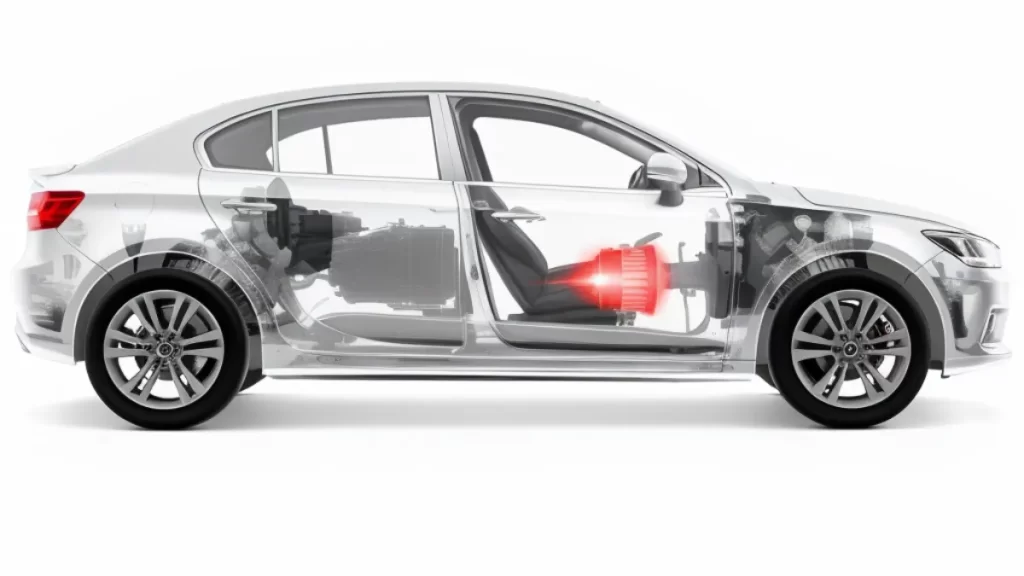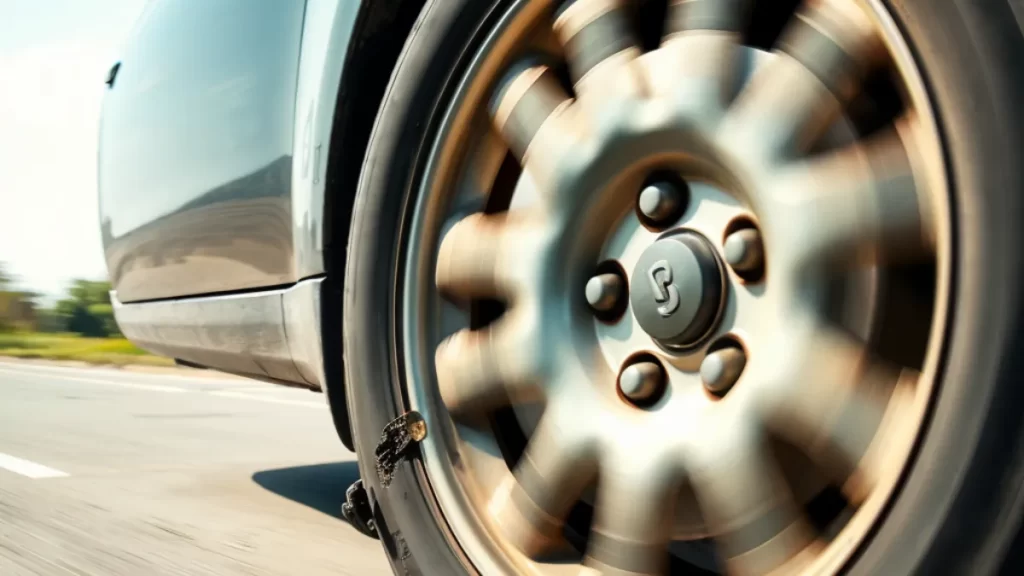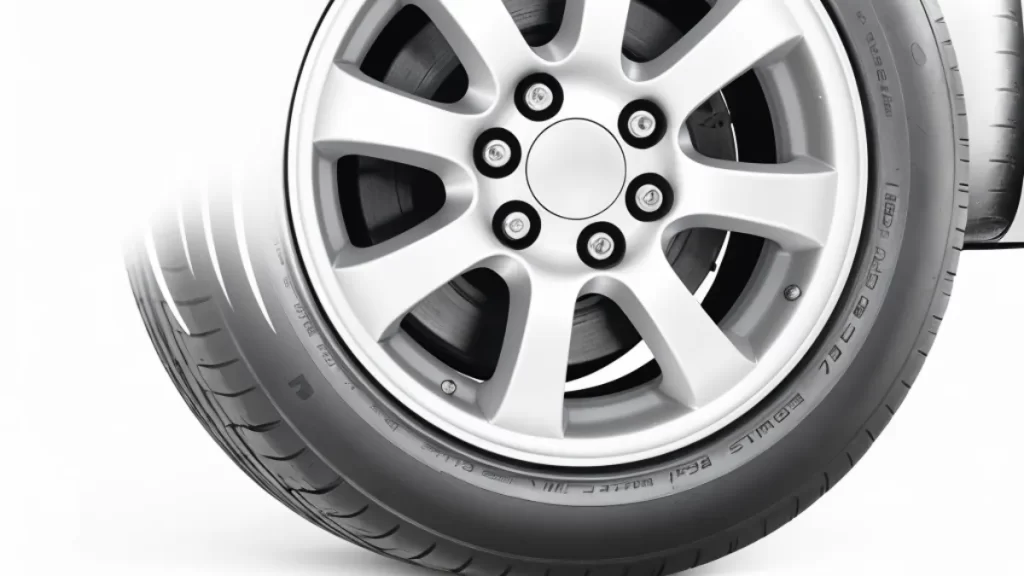When you’re cruising down the road, the last thing you want to feel is Why Is My Car Shaking and vibrating? This unsettling experience not only makes your drive uncomfortable but also signals that something might be wrong under the hood.
Whether it’s an issue with your tires, wheels, engine, or brakes, identifying the cause of your car’s shaking is crucial for ensuring a smooth ride and maintaining your vehicle’s safety. Let’s dive into the possible reasons behind this common automotive problem and how you can address it.
Alignment: Why Is My Car Shaking

Alignment issues are a frequent culprit when it comes to your car shaking or vibrating on the road. Misalignment can occur due to worn suspension components, hitting a pothole, or simply from everyday wear and tear.
When your vehicle’s wheels are out of alignment, it can cause uneven tire wear, leading to an out-of-balance feeling that you’ll notice, especially at higher speeds. This imbalance often results in a noticeable vibration through the steering wheel or even throughout the entire vehicle.
Regular wheel alignment checks are essential to ensure your car maintains a smooth ride and avoids unnecessary tire wear or further damage to the suspension system.
Stop, look, and listen: Why Is My Car Shaking
To diagnose why your car might be shaking, it’s crucial to stop, look, and listen. Start by paying attention to when the vibration occurs—does it happen only at certain speeds, or does it worsen as speed increases? Does the shaking feel concentrated in the car seat or the steering wheel? Also, notice if there’s any abnormal noise when the car shakes or if the vibration persists even when the vehicle is standing still with the engine running.
By carefully observing these conditions, you’ll gather vital clues that can help you and your mechanic pinpoint the exact source of the problem. This systematic approach ensures that nothing is overlooked, leading to a quicker and more accurate diagnosis.
Does the vibration get worse with wheel and tire problems as the speed increases?

If the vibration gets worse as the speed increases, it’s often linked to wheel and tire problems. Issues like an improper wheel and tire balance, uneven tire wear, or even a separated tire tread can cause this vibration to intensify as you drive faster.
Damaged wheels or loose lug nuts can also contribute to the problem, making your car shake more noticeably at higher speeds. Regular maintenance, such as rotating tires, balancing wheels, and ensuring proper tire pressure, can help prevent these issues and keep your ride smooth.
Worn suspension parts and joints
Why Is My Car Shaking, Worn suspension parts and joints can be a hidden cause of your car’s shaking or vibrating while driving. Looseness in the suspension or steering components, such as ball joints or tie rod ends, can lead to instability, making it difficult to align your vehicle properly.
This instability often results in a noticeable shake in the steering wheel, especially when navigating turns or driving over uneven surfaces. If your car’s steering wheel feels loose or wobbly, it’s crucial to have a mechanic inspect the ball joints, tie rod ends, and other related components to identify and fix the source of the shake. Timely replacement of these worn parts is essential to maintain control and safety while driving.
Also Read: 127.0.0.1:62893: The Secrets of Your Local Network
Damaged or worn brake rotors
Damaged or worn brake rotors can be a significant cause of vibration felt through the steering wheel or brake pedal when you apply the brakes. Brake rotors that have excessive run-out or thickness variation can cause the brake calipers to vibrate as they press against the rotor, leading to a shaking sensation.
This issue is often more noticeable when you’re braking at higher speeds, as the rotors are subjected to more stress.
If you experience this type of vibration, it’s essential to have your brake system inspected by a mechanic to ensure the rotors and other components are in good condition and functioning safely. Regular checks and timely replacement of brake rotors can prevent further damage and ensure your vehicle stops smoothly and reliably.
Wheel and tire problems

Wheel and tire problems are among the most common reasons for a car shaking or vibrating while driving. Issues like improper wheel and tire balance, uneven tire wear, or a separated tire tread can all lead to noticeable vibrations, especially as your speed increases.
Additionally, damaged wheels or loose lug nuts can exacerbate the problem, causing more severe shaking at higher speeds.
These problems can often be avoided with regular maintenance, including visual inspections of your tires and wheels, checking tire pressure, and ensuring that the lug nuts are properly tightened. Routine tire rotation and wheel alignment are also crucial to maintaining a smooth ride and preventing premature tire wear.
Engine and transmission: Why Is My Car Shaking
Issues with the engine and transmission can also lead to your car shaking or vibrating, even when the vehicle is stopped but the engine is running. If the vibration occurs both while driving and when the car is idle, it could be due to a broken or loose engine mount, which holds the engine in place.
A loose transmission mount can also cause similar problems. Additionally, a broken radiator fan could be the culprit; when out of balance, it can create noticeable vibrations when it spins.
Although it’s less common, if the vibration only happens when the engine is warmed up, the radiator fan could be the cause, particularly if it’s an electrically operated fan that kicks in when the coolant temperature exceeds a certain level. It’s important to have these components checked to ensure your vehicle’s engine and transmission are operating smoothly.
Closing Thoughts
While we’ve explored various reasons behind Why Is My Car Shaking, or vibrating, from wheel and tire problems to worn suspension parts and engine issues, it’s clear that these symptoms should not be ignored.
Addressing the root cause early can prevent more significant, costly repairs down the road and ensure your vehicle remains safe and reliable.
Regular maintenance and prompt attention to unusual vibrations can keep your car running smoothly and your driving experience enjoyable. Remember, if you’re ever unsure about what’s causing the problem, consult a trusted mechanic to get the expert help you need.
FAQs:
Why is my car shaking while driving?
Your car might be shaking due to issues like unbalanced tires, worn-out suspension, or engine problems. It’s essential to get it checked by a mechanic.
What causes a car to shake at idle?
A car shaking at idle could indicate problems with spark plugs, engine mounts, or a dirty air filter. Regular maintenance can prevent this.
Is it safe to drive a shaking car?
Driving a shaking car can be unsafe, as it may indicate serious issues. It’s best to get it inspected as soon as possible.




